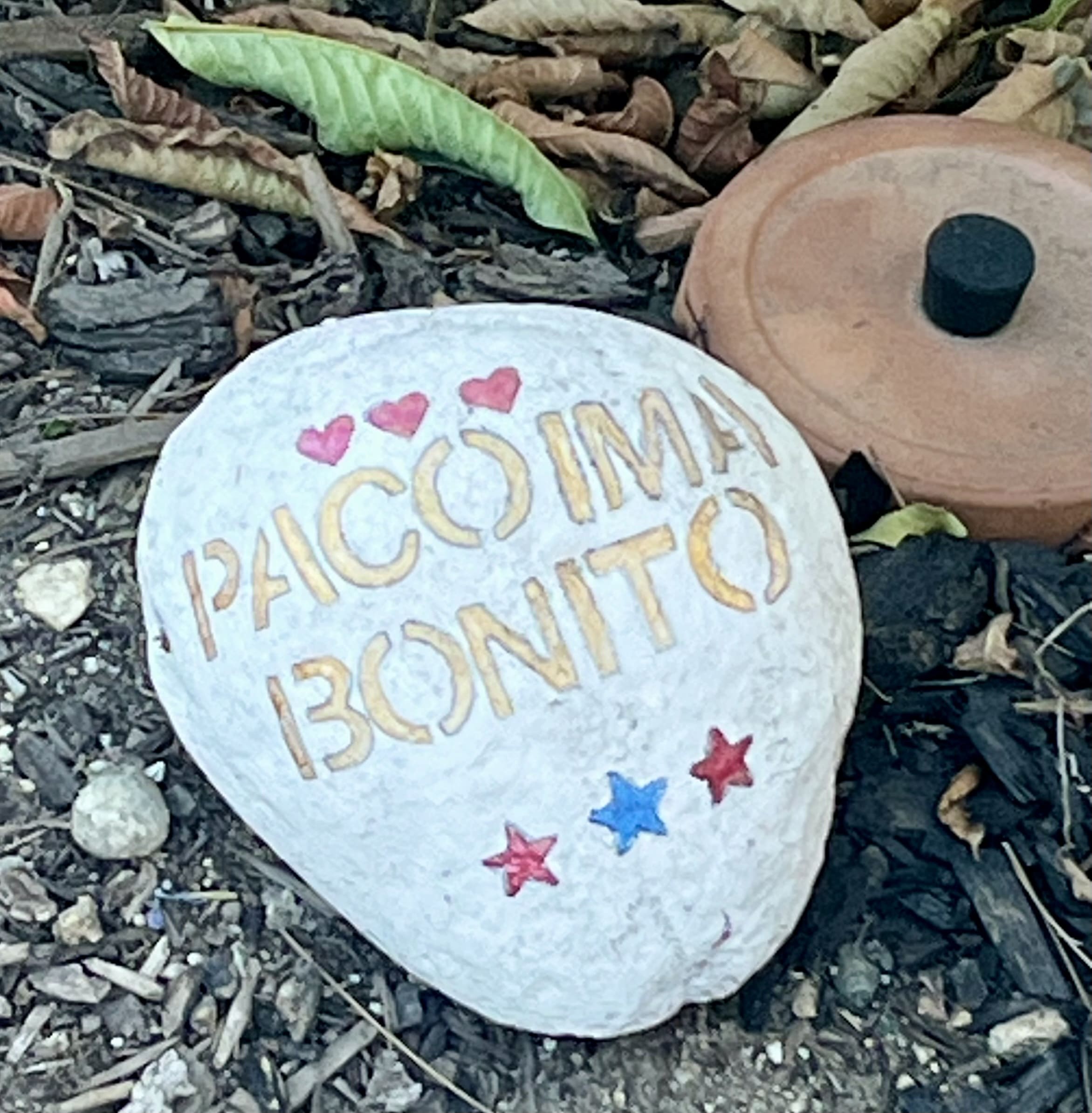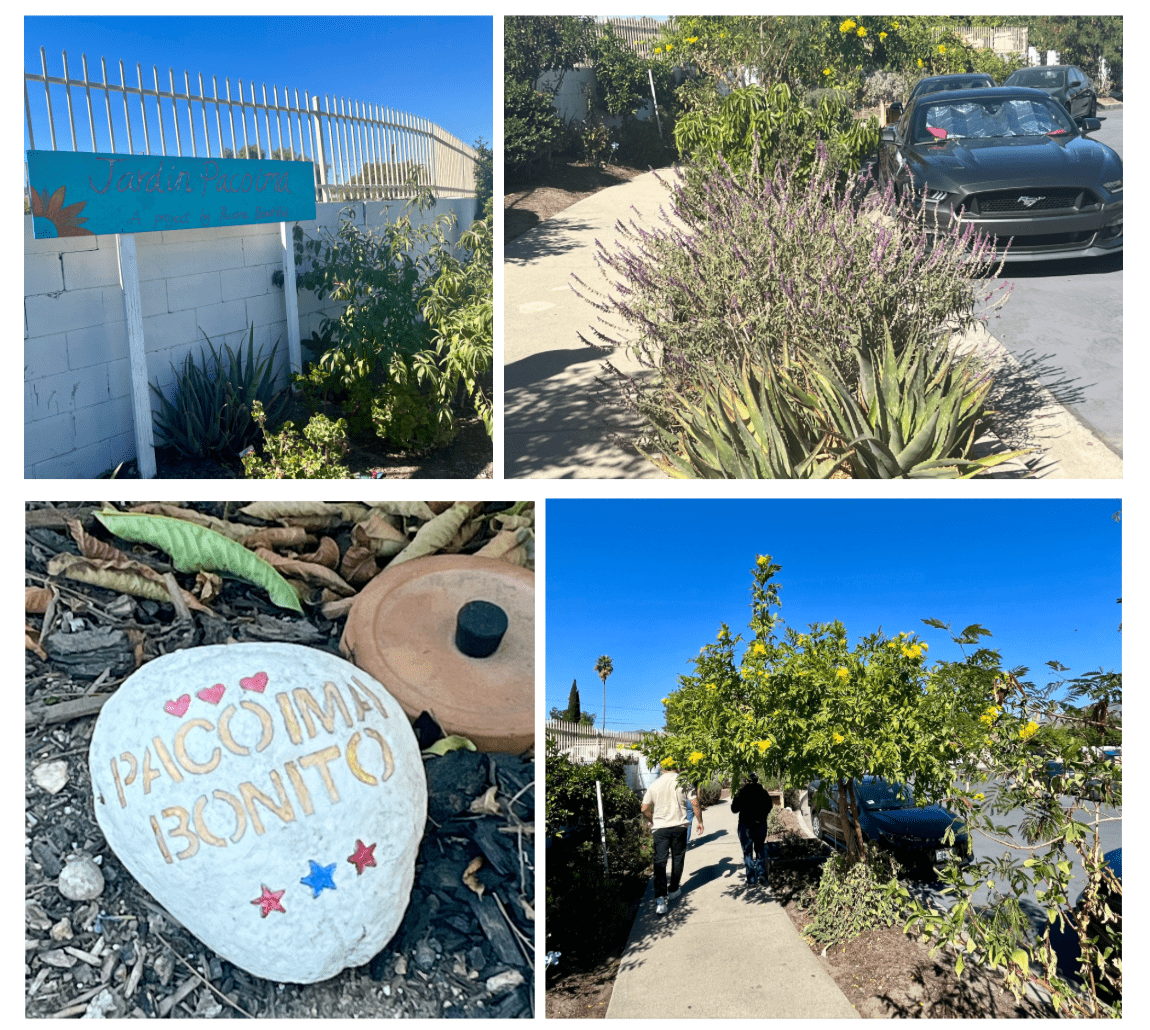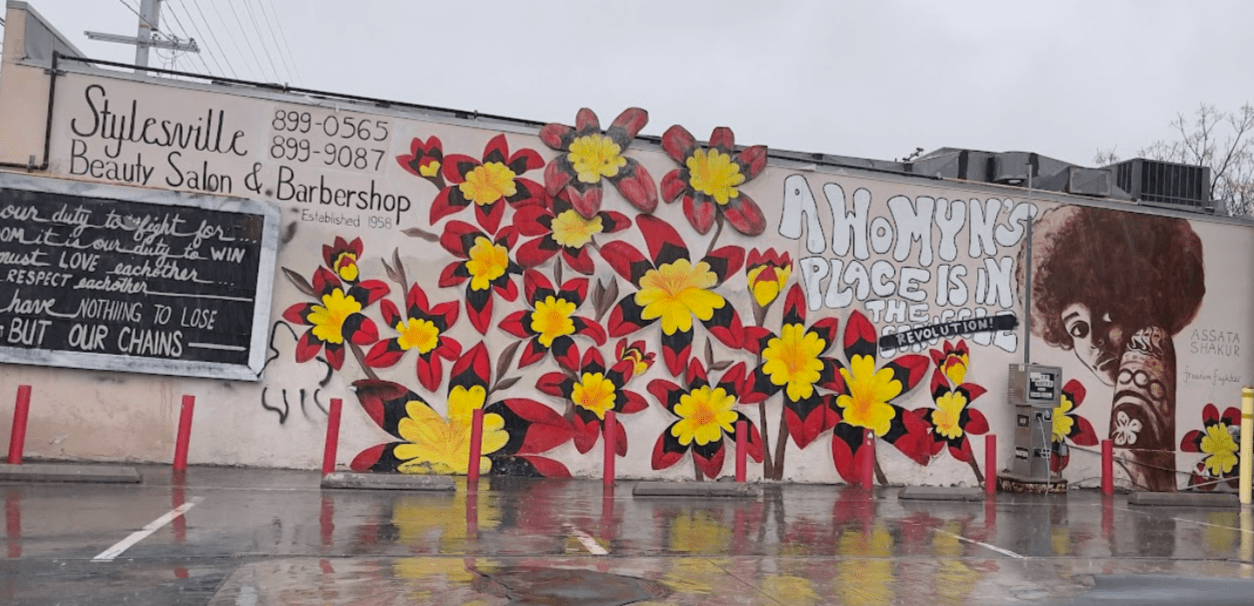
Pacoima Beautiful: Empowering Environmental Justice in a Vibrant Community
It’s always great to hang out with community activists and advocates who love their ‘hood as much as CoCo loves South Central. Last week, CoCo got to team up with Pacoima Beautiful to visit each other’s organizations, and it was just pure joy to be in space with this dedicated group of environmental justice warriors.
Pacoima Beautiful (PB) was founded in 1996 with a mission to address environmental and health disparities in the predominantly low-income and minority community of Pacoima. The organization recognized the urgent need to combat pollution, advocate for clean air and water, and create a healthier living environment for its residents. One of the key focuses of Pacoima Beautiful is environmental justice. The organization believes that every individual, regardless of their socioeconomic status or background, deserves to live in a clean and healthy environment. They work tirelessly to raise awareness about environmental issues and empower community members to take action.
Through various programs and initiatives, Pacoima Beautiful has been successful in engaging the community and promoting sustainable practices. They have implemented projects such as community gardens, urban forestry programs, and renewable energy initiatives. These efforts not only improve the physical environment but also provide educational opportunities and economic benefits for the community.
Education and youth empowerment are also at the core of Pacoima Beautiful’s work. They offer environmental education programs in local schools, teaching students about the importance of sustainability, conservation, and environmental stewardship. By instilling these values in the younger generation, Pacoima Beautiful is creating a lasting impact and fostering a sense of responsibility towards the environment.
A current campaign for PB is Shutdown Whiteman Airport. Whiteman is a Los Angeles County-owned municipal airport located in the heart of Pacoima, a historically underrepresented working-class community of color. Whiteman Airport plays a key role in the legacy of discriminatory policies and practices that continue to put the health and safety of Pacoima residents at risk.
Recent findings by the Environmental Protection Agency (EPA) confirm what many of us have suspected for a long time – leaded aviation fuel used at Whiteman Airport is causing air pollution and endangering our health and welfare. One of the many threats is the continued storage and sale leaded aviation fuel.
“Our community has already faced multiple sources of pollution, and we cannot afford to endure more. But this is not just about pollution; it’s about safety, too. There have been more than 13 airplane crashes over a 10-year period. During the pandemic, a plane crashed in a resident’s yard, and tje student who was learning virtually had to rescue his grandmother.,” explained PB Policy Associate Teodora Reyes.
The Board of Supervisors will vote on Item 20, “Reimaging Whiteman Airport,” today, November 7.
Pacoima, a neighborhood located in the San Fernando Valley of Los Angeles, California, has a rich history and a diverse population. While it is now a predominantly Latino community, it is important to acknowledge and honor the significant contributions of Pacoima’s historically black population, who played a crucial role in shaping the neighborhood’s identity and fostering a sense of community.
During the mid-20th century, Pacoima experienced a significant influx of African-American residents, drawn to the area by job opportunities in the defense industry and a desire for a better quality of life. Many black families settled in Pacoima, creating a vibrant and close-knit community. Despite facing racial discrimination and systemic challenges, Pacoima’s black population demonstrated remarkable resilience and strength. They established businesses, churches, and community organizations that became pillars of support and empowerment. These institutions played a vital role in fostering a sense of unity and providing resources and services to the community.
“One such business is Stylesville,” said PB Project Manager Roxy Rivas, who took CoCo staff members on a city tour. “This family-owned barbershop has been passed down through generations.
This beautiful artwork is on the side of Stylesville’s building. “Assata Shakur” 15′ x 45′, located at 13161 Van Nuys Blvd on Mural Mile in Pacoima, was created by Kristy Sandoval, Pacoima Beautiful’s Creative Director and an all-female team of artists.
StylesVille is the oldest black-owned barbershop in the San Fernando Valley. Freddie and Ollie Carter opened the long-time Pacoima business in 1957, across the street from its current location. At the time, the San Fernando Valley was mostly segregated. Pacoima’s historically black population also played a crucial role in the civil rights movement. Activists and community leaders organized protests, marches, and sit-ins to fight against racial injustice and discrimination. Their efforts contributed to the broader struggle for equality and social justice, leaving a lasting impact on Pacoima and beyond.
Over the years, Pacoima’s demographics have shifted, and the black population has decreased. However, the legacy of Pacoima’s historically black community remains an integral part of the neighborhood’s identity. The contributions and achievements of black residents continue to be celebrated and remembered, serving as a source of inspiration for future generations.
Pacoima Beautiful’s success can be attributed to its strong community engagement and grassroots approach. They prioritize community involvement, encouraging residents to shape their neighborhood’s future. By organizing community events, workshops, and clean-up campaigns, Pacoima Beautiful fosters a sense of pride and ownership among community members, empowering them to take charge of their environment.


